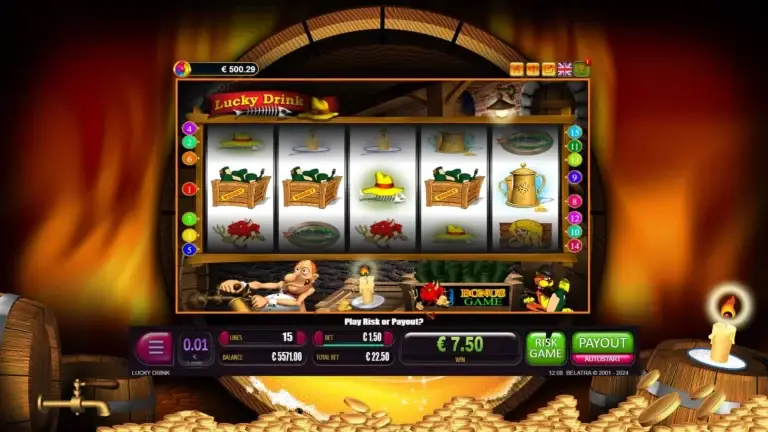Gameplay requires trust. Transparency encourages participation, while honesty fosters retention. Without demonstrable guarantees, players turn into skeptics. That’s why proven fairness in gambling ceases to be a marketing slogan and becomes a systemic necessity.
Digital Trust Revolution
Online gambling has long surpassed the visual simulation of offline casinos. Today, a high-traffic platform is not limited to design and loading speed. The most critical element becomes the outcome—especially in live games, roulette, slots, and card simulators. Players expect that each bet has a chance, not a predetermined outcome. Against this backdrop, proven fairness in gambling shapes a new gaming culture.
The principle is not based on declarations from the operator but on algorithmic verification of each outcome. The process does not hide the result but reveals the mechanics of its formation. Players gain access to the mathematics of winning or losing, ensuring that the game was not compromised in advance.
How Proven Fairness Works in Gambling
Each gaming outcome in a proven fairness system receives a unique cryptographic fingerprint. The signature is created before the round starts and stored in encrypted form. After the round ends, the platform reveals the value and provides a verification tool. Players can compare the encrypted record with the original result, ensuring no interference.
Algorithms use SHA-256, SHA-512, or other cryptographic hashes where even minimal changes in input data completely alter the result, eliminating the possibility of manipulation. Most systems incorporate client and server “seeds”—initial values of the random number generator. Players can change their client seed, increasing transparency.
Why It’s Critical for Reputation
Proven fairness in gambling ceases to be an experiment and becomes an industry standard. Platforms that implement these algorithms gain higher loyalty levels. Players, aware of the ability to verify each outcome, are less likely to leave the service. Trust is built on access to tools, not on statements in the site footer.
Furthermore, regulatory bodies in different jurisdictions begin to consider the presence of proven systems when certifying platforms. This affects licensing prospects, investment attractiveness, and overall market position. What seems like a technical element transforms into a competitive advantage.
Platforms Already Implementing the Technology
Major crypto casinos have long included proven fairness in gambling as a key marketing argument. On sites like Stake, BC.Game, and Roobet, each slot or draw opens a “Provably Fair” link, displaying:
-
original hash and value;
-
client seed (player variable);
-
server seed (casino variable);
-
nonce (round number);
-
result with a verification calculator.
Such systems not only allow manual result verification but also enable players to create their own control chain. For example, on Stake, the “Seed Reveal” feature lets players update the server key, restarting the randomness algorithm and eliminating any suspicions.
Real Threats Without Proven Fairness
The absence of proven fairness in gambling opens up a wide range of manipulative possibilities. Programmers can introduce adjustments in the code that are triggered at certain bet amounts. Some uncertified platforms have been caught in intentional manipulation of RNG (random number generators) at high stakes.
A player is unable to technically detect such manipulation without an embedded cryptographic layer. Even if the result seems “too suspicious,” proving it is nearly impossible. This leads to distrust, reduced conversion, and the spread of negative reviews. Players leave not only with losses but also with a sense of deception.
Advantages of Implementing Proven Fairness in Gambling: Business Perspective
For a platform, proven fairness in gambling not only protects reputation but also reduces the burden on customer support. A player who receives an unfavorable result does not file a support ticket but checks the hash themselves. This reduces emotional tension, lightens the support load, and decreases the number of refunds.
The marketing strategy on such sites shifts focus: more attention is given to the randomness mechanics, less to bonuses. A new type of players emerges, oriented towards verifiability rather than the illusion of easy luck. Additionally, implementing cryptography facilitates audits by independent laboratories like iTech Labs, eCOGRA, and GLI.
Signs of genuine proven fairness in gambling:
-
The platform generates a hash value before the game starts and keeps it openly accessible.
-
Players have the ability to set their own client seed.
-
After the round ends, the system reveals the original value, allowing comparison with the hash.
-
The result is verified using an online calculator or an interface-embedded validator.
-
Algorithms with cryptographic hashing are used: SHA-256, SHA-512, HMAC.
-
The system offers the ability to change seed chains without resetting progress.
-
Round histories with hashes and results are accessible in the interface.
-
All values are generated before the bet, not after.
-
Open documentation on the algorithm’s operation principle is available.
-
The platform provides an external API for verification.
Distinguishing Marketing from Genuine Systems
Some platforms use the term “fairness” as a visual trust element but do not provide a verification mechanism. If the “check” button does not reveal the mathematical component, the algorithm is absent. Verification of genuine proven fairness in gambling can only be done through verification: hash before the game starts and decryption afterward.
It is also important to consider whether a combination of server and client variables is used. Unilateral generation with a preset seed does not exclude the possibility of substitution. Only a symmetric model ensures objectivity and eliminates the platform’s influence on the result.
Future and Industry Standard
Integration of the technology in the coming years will become a standard not only among crypto casinos but also on platforms with fiat payments. Gaming licenses in Curacao and Malta are already starting to consider the presence of proven fairness in gambling when issuing or renewing permits. Some software developers, including SoftSwiss and Betsoft, are developing hybrid systems that combine classic RNG with proven models, allowing the use of a transparent mechanism even in traditional slots.
Conclusion
Proven fairness in gambling is no longer an option for enthusiasts. The technology evolves into a fundamental transparency standard on which trust, retention, and the future of the industry are built. Platforms that ignore the need for cryptographic verification risk losing their audience. A player equipped with a control tool changes the rules of interaction with the casino: more math, less blind faith.



